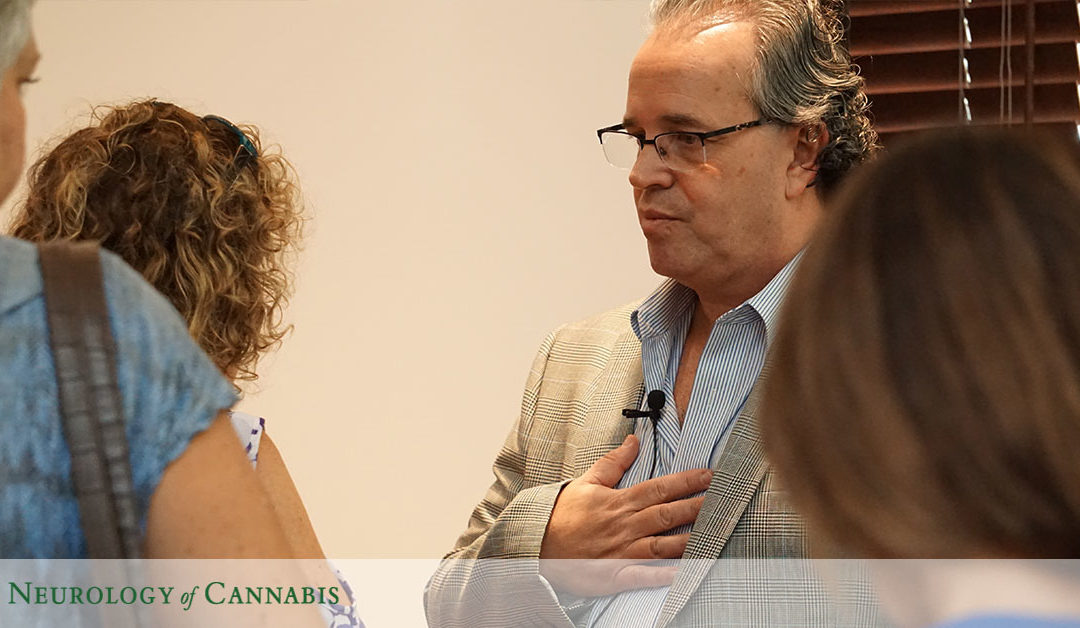As the medical cannabis industry settles into its place in Florida healthcare, news stories come out every day which provide insight into general acceptance levels, research into new applications, and the overall progress in the industry as a whole.
As one of Sarasota’s premiere cannabis healthcare providers, Neurology of Cannabis is dedicated to keeping you informed as to some of the top stories that we are following. Here are some of the more recent newsworthy stories you might find interesting.
Florida Medical Cannabis News
Cannabis Acceptance & Hospice Care: The results of a new online survey sponsored by Morse Life Hospice and Palliative Care and conducted by The Harris Poll has provided insights into cultural support and acceptance of medical marijuana.
The poll took place in September of 2019, with results reported in November of 2019. Respondents included U.S. adults over the age of 18. The main result which pertains to this practice is the finding that 87 percent of Americans support the use of medical marijuana as a treatment option for terminally ill patients. The majority of Americans – 58% – indicated that they strongly support the inclusion of medical marijuana into treatment possibilities for all who suffer life-debilitating disease and illness.
According to an article published by Cannabis News Florida, the top insights include overwhelming support of medical marijuana for life-limiting illness and hospice care. Experts cite the study’s results as setting the stage for a revolution in treatment protocols; and those in the medical cannabis industry are encouraged to know that a majority of American support the ongoing progress in this area.
CBD Database Provides Valuable Insight: Cannabidiol more commonly known as CBD, is the second most prevalent active molecule in the Cannabis plant. CBD is widely available to the public because unlike THC, CBD use does not result in any intoxicating euphoric effects
The endocannabinoid system is the human body’s physiological machinery which functions as a balancing or homeostatic regulator of many different bodily functions. Part of this system, the CB1 and CB2 receptors interact with plant cannabinoids, including CBD and THC. CBD interacts with these in the brain and in the periphery to help regulate neurotransmission and immune system function. CBD shows great promise as not only a treatment for the nervous system, but also a range of physical conditions and symptoms. One of the most recent examples is FDA approved Epidiolex, a CBD pharmaceutical grade drug utilized for seizures.
Strainprint Technologies Inc. has one of the most extensive global evidence databases, outlining patient reported outcomes from Cannabis use. Over 25% of Strainprint’s overall database holds efficacy records from CBD-only products. A study and database this large permits both doctors and patients to apply aggregated data to understand which products are most effective for which symptoms. The data reflects CBD effectiveness for muscle pain, anxiety and joint pain and inflammation, Strainprint’s data is analyzed to provide an efficacy score showing the percentage of relief or symptom improvement.
Of interest is the fact that efficacy scores nearly double when a slight amount of THC and other minor cannabinoids are active is present in product chemical profiles. CBD products are also showing symptomatic promise of relief with less side effects than other over the counter drugs.
The research is showing that even as CBD gains popular acceptance and is showing effectiveness in some cases, patients may wish to consult with a licensed cannabis medical professional to determine if a medical marijuana variety which also contains THC may be a better fit for the relief they desire.
Both CBD and cannabis products are enjoying quick acceptance in the mainstream as their effectiveness and safety are being documented. For more information as to if medical cannabis is the right solution for your medical treatment plan, call Dr. Daniel Stein for a consultation.

